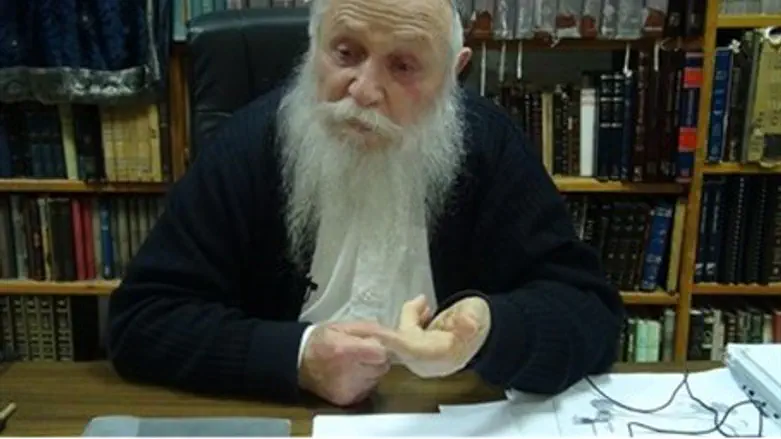
Rabbi Haim Druckman, 82, and his wife, Rabbanit Dr. Sarah Druckman, will receive the Yakir Bnei Akiva citation next week from the Bnei Akiva movement, which is celebrating its 85th anniversary. The rabbi heads the Bnei Akiva Yeshivas Center and is a member of the movement's National Board.
Rabbi Druckman, the longtime Head of the Or Etzion Yeshiva, was Knesset Member for the National Religious Party – the predecessor of the current Jewish Home – and served as Deputy Religions Minister, and Head of the Conversions Array in the Prime Minister's Office.
In 2012, he received the Israel Prize for his life's work.
He met his wife at Bnei Akiva. “It's the greatest matchmaker,” he told Israel Hayom's Yehuda Schlesinger with a smile, in a special interview that is to be published Friday. Rabbanit Druckman added: “He served as a member of the National Board, and I was in charge of the activity at the Raqmat Gan branch, and I also worked a little in the secretariat of the National Board to make some money.”
They lived in Jerusalem, where two of their nine children were born. At a certain point, Rabbi Druckman's rabbi, Rabbi Tzvi Yehuda Kook, asked them to move to Merkaz Shapira, seat of the Or Etzion Yeshiva, and run the yeshiva.
"The division of roles between us was clear,” the Rabbanit explained. “He dealt with his public activity, and I dealt with the childraising. Difficult? I don't know, they didn't all come in one day. He did his part and I did mine.”
One of their children is an adopted daughter, and another has Down's Syndrome. “We took the adopted daughter from WIZO in Tel Aviv,” the Rabbanit recalled. “Today she is almost 50 and she has many children,” she said, adding “bli ayin hara” – a phrase directed against the “evil eye.”
"But it was not always easy and simple. In fact, she never knew her parents. From the moment she was born, she was at WIZO.”
"We saw a report about her in the newspaper, when she had reached the age of 5 and couldn't stay there anymore. The organization didn't know what to do with her. So we turned to her and adopted her. In retrospect, it's a good thing that we didn't know what it involved. It's not simple to raise a child who never knew a home her whole life. It was more difficult than raising the other eight.”
"It's good that we were naïve and didn't know. We thought that there are five kids so we'll have another one, but we didn't take into account the difficulty. A girl who didn;t grow up in a normal framework, that isn't simple. At 5, she didn't know a whole sentence in Hebrew. She had a thirst for the love she hadn't had until then.”
They are also very proud of Shulamit, who was born with Down's Syndrome. “At the birth, they tried to soften the blow, they tried to evade the subject, but you could see, even then,” the Rabbanit related. “It's true that there was some sorrow at first, but she was actually the easiest to raise. She was such a smiling, easygoing baby. One of the bunch.”
"Four years ago, she married a guy who also has Down's Syndrome, and they live in Jerusalem. A wonderful couple, they're like a pair of doves. She always says a [person with] Down's should marry a Down's, she always tells us how he understands her.”
"You can see how good their life is, how happy they are,” the rabbi joins in, beaming. “She is always going around everywhere and saying 'My husband' this and 'my husband' that, and he is always saying what a wonderful and amazing wife she is, and how God sent her to him. They do everything together. A couple made in Heaven.”
They have two sons and seven daughters. “some of our children have outdone us in the number of their children,” the Rabbanit said with a smile. “One family has 16 children, one has 15, one has 11, and we 'only' have nine.”